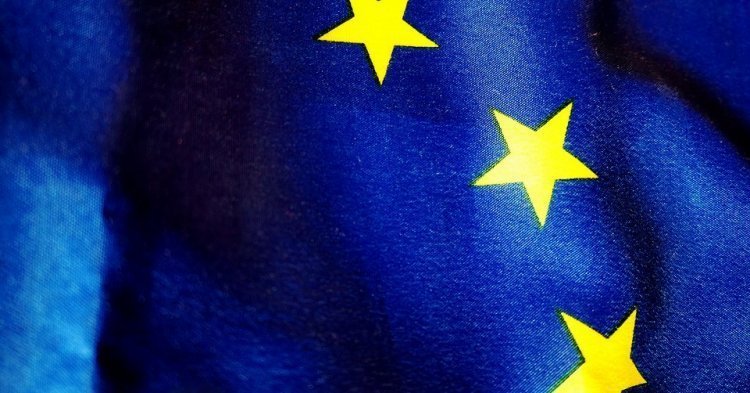Juuso Järviniemi, The New Federalist: Let our MEPs stand strong
For the first time in a quarter of a century, more than a half of the electorate voted in the European elections. Slowly but surely, a European public space is also developing: this time, voters were more acutely aware of what is happening in other EU countries than perhaps ever before. Before 2014 nobody knew what a Spitzenkandidat was, now the public has witnessed two contests between lead candidates. EU democracy is developing slowly but surely.
We now know who will be occupying the 751 seats in the Parliament once the newly elected MEPs begin their work in July. We know which parties got rewarded and which ones punished by the voters. But in an important sense, the battle for the true meaning of these elections is only taking place in the next few weeks, starting from tomorrow.
On Tuesday, member states’ leaders will convene to have a first discussion on nominations for EU top jobs, including Commission President. After the hundreds of millions of votes cast this weekend, it’s ironic and perverse that 28 men and women get to decide whether or not these elections also were a vote on who should head the EU for the next five years. Today and tomorrow, and until the European Parliament has decided on the Commission President, the citizens need to stand strong in support of their directly elected representatives.
The historic rise in the turnout rate means the Parliament is now stronger than ever before. Let it not bow to pressure from national leaders. Let the next Commission President be one of the candidates presented to the people before the elections, not someone who’s pulled from the bushes after the elections are over.
Louise Guillot, Le Taurillon: Respect for the Spitzenkandidaten principle ?
Civil society is to be pleased because the participation rate in the European elections has increased in the majority of Member States, and France is not to be outdone, reaching 50.97%. We have to go back to the 1994 elections to get a higher turnout. Pro-Europeans can therefore be happy to see that French citizens mobilised on Sunday, even if the far-right party of the Rassemblement National is still in the lead, as it was in 2014.
On a European scale, it is undeniable that the Greens stand out and progress, particularly in Germany and Ireland. Even if the EPP, S&D and ALDE would obtain an absolute majority if they formed a coalition, there is every reason to believe that the Greens could play a decisive role in the appointment of the next European Commission and the election of its President by affirming a strong pro-European and progressive coalition.
The results before us on 27 May show a split and fragmented European Parliament, which will have to form a new coalition and bring a new dynamic for the next five years since the EPP and the S&D can no longer govern in a two-headed majority. It is therefore essential that this new coalition be progressive and ambitious for the next five years in order to meet the expectations of European citizens, who have insisted on climate action and social justice.
Finally, there is the question of respect for the Spitzenkandidaten system. Manfred Weber claimed to be the legitimate candidate, but it is possible that the European Council will decide otherwise, especially since the other political groups have not yet given Manfred Weber their consent to take over the European Commission.
Gesine Weber: A wake-up call for concrete action in the next legislature
With the highest turnout since 25 years, the European electorate has finally woken up from its inertia: that more than half of European citizens who were eligible to vote found their way to the ballot boxes shows that something is moving in Europe, and that citizens do not take the achievements of the European Union for granted any longer. It is probably this high turnout that finally prevented an ultimate victory of right-wing parties, and this is for sure the good news of this election night.
Nevertheless, we must avoid jumping hastily to two misleading conclusions: First, the results of the elections must not prompt us to think that the populist surge is a relic of the past. Considering that the number of Eurosceptic members rose significantly in the Parliament, it is now the pro-European parliamentarians’ duty to face and especially to dismantle their claims. This is particularly important when we look at the worrying results in France, where the Rassemblement National was the strongest party.
Sure, European elections can be considered, to some extent, a mirror of national politics, but if the benefits of Europe are perceived so little by a quarter of a population that they are seduced by Le Pen’s claims, national processes can not exclusively serve as an excuse for high support for right-wing populists. This is a wake-up call for the EP to pursue concrete action in the next legislature that really impacts and changes the citizens’ lives for the better.
Second, the higher turnout must not lead us to the assumption that citizens in Europe are now wholehearted Europeans who enthusiastically went to the ballot boxes after having been mobilised by passionate electoral campaigns. Indeed, the electoral campaigns of 2019 have shown how much parties in Europe stick to national campaigns and how little they are able to communicate what they actually stand for in Europe. To put it bluntly, the emergence of a European public sphere during the electoral campaigns was, with very few exceptions, sheer illusion, and there is much work to be done.
The most interesting results of these elections are yet to come: finding a coalition in the European Parliament that is able to elect a Spitzenkandidat as President of the European Commission. For the sake of plurality in Europe, it is not that bad that the conservatives and social democrats have lost seats – ALDE and the Greens might set new impetus to the EP in fields where European action is more needed than ever, for instance in environmental protection and fighting climate change.
If Manfred Weber (EPP) wants to become President of the Commission, he will have to make concessions to the others – and especially as Weber is not a Juncker whose passion for Europe convinced pro-Europeans from all parties, this will for sure prevent the EP from becoming too conservative and even more boring for the average spectator. Yet, hope remains that the heads of state and government in the European Council stick to the Spitzenkandidaten principle, even if negotiations get tough – if they do not, they break a promise and finally squander the Europeans’ last hope that the EU might ever get right of back-room politics.
Xesc Mainzer, El Europeísta: The slow demise of social democrats
As the dust settles after last week’s European Parliament election, there is a clear loser in sight: the Socialists and Democrats. Despite not being the only group that has faced severe losses in this European election (ask the European People’s Party, for example), social democracy is following a dangerous path all over Europe.
“That’s not the case everywhere” you might say. Indeed, there are exceptions such as Spain, where Prime Minister Sánchez’s socialists have managed to win an EP election for the first time since 2004, or the Netherlands where Frans Timmermans has led an apparently dying PvdA to victory. But it is something you cannot deny, that what once was one of the dominant ideological trends in Western Europe (if not THE dominant one) is in a seemingly non-stopping pathway to irrelevance.
In Germany, the cradle of modern social democracy, the SPD has fallen below the Greens to become the third-biggest party, just a few seats above the far right. In France, the most social democratic-leaning, sizeable member state in the EU for the past decades, the Parti socialiste has almost been blown out of the EP by finishing sixth barely above the minimum vote threshold. Not to mention the United Kingdom, where the Labour Party’s unclear stance on Brexit has taken it down almost to the fourth place.
A mix of sociodemographic shifts, rightward turns and bad strategic decisions have led social democrats to the point they are now. Will they be able to learn from this election and find their way back from irrelevance?





Follow the comments: |
|
